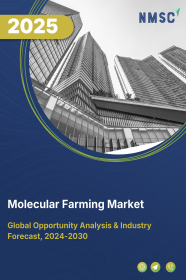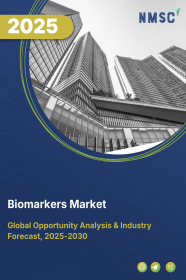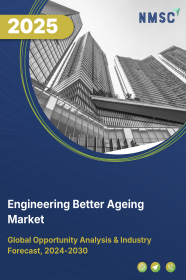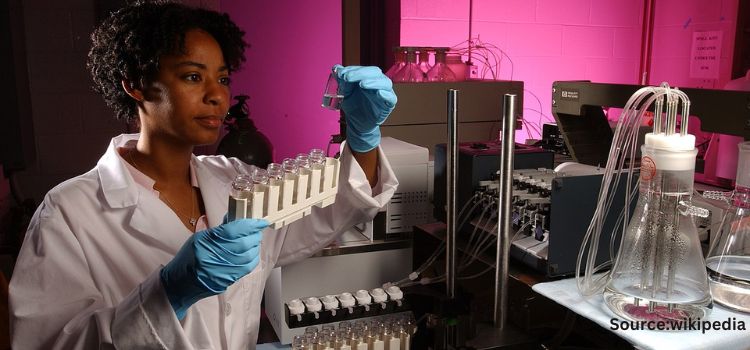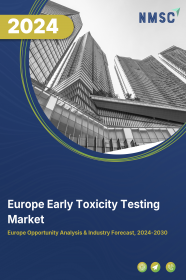
Europe Early Toxicity Testing Market by Technique (In Vivo, In Vitro and In Silico), by Toxicity Endpoint (Genotoxicity, Dermal Toxicity, Skin Toxicity, Ocular Toxicity, Phototoxicity, and Others), and by End-User (Pharmaceutical Industry, Cosmetic Industry, Chemical Industry, Food Industry, and Others) – Opportunity Analysis and Industry Forecast, 2025–2030
Industry: Healthcare | Publish Date: 13-May-2025 | No of Pages: 215 | No. of Tables: 149 | No. of Figures: 94 | Format: PDF | Report Code : HC731
US Tariff Impact on Europe Early Toxicity Testing Market
Trump Tariffs Are Reshaping Global Business
Europe Early Toxicity Testing Market Overview
The Europe Early Toxicity Testing Market size was valued at USD 1.30 billion in 2024, and is predicted to reach USD 2.18 billion by 2030, at a CAGR of 9.1% from 2025 to 2030.
The factors such as increasing investments in healthcare along with the expansion of the chemical industry accelerate the market growth. However, stringent and comprehensive testing protocols pose a significant challenge to the growth of the early toxicity testing market. On the contrary, the adoption of 3D cell culture in in-vitro testing offers promising future opportunities for market growth by improving the accuracy and dependability of toxicity testing results that is expected to enhance the market expansion in the forthcoming years. Moreover, the key players such as Laboratory Corporation of America Holdings, WuXi AppTec, Medpace, Thermo Fisher Scientific, Eurofins Scientific, and others are taking various initiatives such as product launches and collaborations across various countries and regions to maintain their competitive position in the market. These initiatives are expected to drive adoption of early toxicity testing market, enabling quicker identification of safety issues. With advancement in 3D cell culture, the scope of clinical trial risks reduces ensuring product safety and regulatory compliance while offering benefits such as reduced late-stage risks, cost reductions, and fewer ethical concerns due to non-animal testing methods, ultimately accelerating the market for further growth.
Increase in Investments in Healthcare Fuels the Growth of the Market
The increase in healthcare investment across Europe is a major driver for the early toxicity testing market. Pharmaceutical companies are receiving financial support that allows them to adopt advanced technologies for toxicity assessment. These investments enable the development of efficient and reliable testing solutions across the pharmaceutical industry. Enhanced funding helps reduce drug development timelines and ensures better safety evaluation standards. This financial backing plays a critical role in driving the adoption of early toxicity testing methods across the region.
Expansion of Chemical Industry Drives the Early Toxicity Testing Market
The expansion of Europe’s chemical sector contributes significantly to the early toxicity testing market. The chemical industry is responsible for the development of various compounds used in industrial, agricultural, and consumer products, all of which must undergo rigorous toxicity screening. According to Cefic Chemdata International, Europe ranked as the second-largest global chemical producer, with chemical sales reaching USD 760 billion in 2022. As the industry grows, so does the demand for reliable and advanced toxicity testing services, thereby supporting market expansion.
Stringent and Comprehensive Testing Protocols Hinder Europe Early Toxicity Testing Market Growth
Strict regulatory frameworks imposed by authorities such as the European Medicines Agency hinder market growth. These agencies mandate comprehensive preclinical and clinical evaluation protocols that extend the timeline for drug approvals. These prolonged procedures slow the entry of new therapies into the market and delay the adoption of innovative toxicity testing solutions. As a result, despite the growing need for safer drugs, regulatory burdens continue to restrict the market’s growth trajectory.
Adoption of 3D Cell Cultures in In-Vitro Testing is Anticipated to Create Market Growth
The increasing adoption of 3D cell cultures in in-vitro testing is expected to offer significant market growth opportunities. These advanced models simulate human tissue more accurately than traditional 2D cultures, leading to better prediction of toxic effects. The enhanced reliability of toxicity data helps reduce the risks associated with clinical trials. This technological advancement supports safer drug development processes and is poised to drive widespread adoption in the European market.
Germany Holds the Dominant Market Share in Europe Region
Germany holds a leading position in the early toxicity testing market due to a rise in cancer cases and the strong pharmaceutical infrastructure. As per Globocan 2022, Germany reported 606,000 cancer cases, with projections estimating an 8.3% increase to 656,000 cases by 2030. This growing patient base creates an urgent need for safe and effective drug development. Pharmaceutical companies in the country are increasingly adopting early toxicity testing methods to meet this demand.
Moreover, Germany continues to expand its pharmaceutical research and development capabilities. Companies are focusing on early-stage toxicity assessment to comply with stringent regulatory standards. For instance, in February 2023, Evotec AG launched EvoFIND, its first innovation center for fragment-based drug discovery. These advancements enhance the efficiency of new drug development and reduce costs, ultimately supporting market growth.
Finland to Witness Substantial Growth in the Europe Early Toxicity Testing Market
Finland is expected to experience substantial growth in the early toxicity testing market due to its aging population and rising chronic disease burden. Older individuals are more prone to long-term health conditions, increasing the need for specialized medications and therapies. As pharmaceutical firms focus on creating treatments tailored to this demographic, the demand for accurate toxicity testing also increases.
Additionally, growing investments in Finland’s healthcare sector support the adoption of advanced toxicity testing technologies. Financial assistance allows pharmaceutical companies to implement modern tools that improve drug safety evaluations and streamline development processes. These developments are projected to drive significant growth in the Finnish market over the forecast period.
Competitive Landscape
The promising players operating in the Europe early toxicity testing industry includes Laboratory Corporation of America Holdings, WuXi AppTec, Medpace, Thermo Fisher Scientific, Eurofins Scientific, PerkinElmer, Inc., Agilent Technologies, Inc., Bruker Corporation, Bio-Rad Laboratories, Inc., Charles River Laboratories International, Inc., ICON plc, Boehringer Ingelheim International GmbH, Merck KGaA, Bayer AG, Zymeworks, and others.
Europe Early Toxicity Testing Market Key Segments
By Technique
-
In Vivo
-
In Vitro
-
Cell Culture
-
PCR
-
ELISA
-
Western Blotting
-
Protein Binding Assays
-
-
In Silico
By Toxicity Endpoint
-
Genotoxicity
-
Dermal Toxicity
-
Skin Toxicity
-
Ocular Toxicity
-
Phototoxicity
-
Others
By End-User
-
Pharmaceutical Industry
-
Cosmetic Industry
-
Chemical Industry
-
Food Industry
-
Others
Key Players
-
Laboratory Corporation of America Holdings
-
WuXi AppTec
-
Medpace
-
Thermo Fisher Scientific
-
Eurofins Scientific
-
PerkinElmer, Inc.
-
Agilent Technologies, Inc.
-
Bruker Corporation
-
Bio-Rad Laboratories, Inc.
-
Charles River Laboratories International, Inc.
-
ICON plc
-
Boehringer Ingelheim International GmbH
-
Merck KGaA
-
Bayer AG
-
Zymeworks
REPORT SCOPE AND SEGMENTATION:
|
Parameters |
Details |
|
Market Size Value in 2024 |
USD 1.30 billion |
|
Revenue Forecast in 2030 |
USD 2.18 billion |
|
Value Growth Rate |
CAGR of 9.1% from 2025 to 2030 |
|
Analysis Period |
2024–2030 |
|
Base Year Considered |
2024 |
|
Forecast Period |
2025–2030 |
|
Market Size Estimation |
Billion (USD) |
|
Growth Factors |
|
|
Companies Profiled |
15 |
|
Countries Covered |
12 |
|
Customization Scope |
Free customization (equivalent up to 80 working hours of analysts) after purchase. Addition or alteration to country, regional, and segment scope. |
|
Pricing and Purchase Options |
Avail customized purchase options to meet your exact research needs. |

















 Speak to Our Analyst
Speak to Our Analyst



